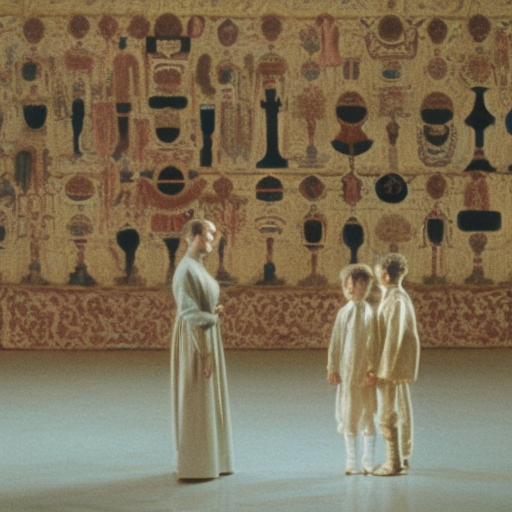Fanny and Alexander by Ingmar Bergman
Summary: Fanny and Alexander is a visually stunning and emotionally rich film that explores the complexities of family dynamics and the power of imagination. Set in early 20th century Sweden, the movie follows the lives of the Ekdahl family, particularly the two young siblings, Fanny and Alexander. Directed by Ingmar Bergman, the film features a stellar cast, including Pernilla Allwin as Fanny, Bertil Guve as Alexander, and Ewa Fröling as their mother Emilie. With its captivating storytelling, exquisite cinematography, and profound exploration of themes, Fanny and Alexander is a masterpiece that continues to resonate with audiences.
Cast and Crew:
- Director: Ingmar Bergman
- Writer: Ingmar Bergman
- Key Actors: Pernilla Allwin as Fanny, Bertil Guve as Alexander, Ewa Fröling as Emilie Ekdahl
- Music Director: Daniel Bell
- Director of Photography: Sven Nykvist
- Producers: Jörn Donner, Lars-Owe Carlberg
Plot:
Fanny and Alexander takes us into the enchanting world of the Ekdahl family, a prominent theater dynasty in Uppsala, Sweden. The story unfolds during the early 1900s and revolves around the lives of the two young siblings, Fanny and Alexander. Their lives are filled with joy and creativity, as they explore the magical world of the theater and enjoy the warmth of their extended family.
However, their idyllic existence is shattered when their father, Oscar, dies suddenly, and their mother, Emilie, marries the strict and authoritarian Bishop Vergerus. The children are subjected to a life of emotional and physical abuse at the hands of their new stepfather. Alexander, with his vivid imagination, seeks solace in the supernatural, while Fanny tries to protect her brother and find a way to escape their oppressive situation.
As the story progresses, we witness the resilience of the siblings and their determination to regain their freedom. With the help of their grandmother, Helena, and the mysterious Isak Jacobi, they embark on a journey to reclaim their lives and find happiness once again.
Themes and Motifs:
Fanny and Alexander delves into several profound themes, including the power of imagination, the complexities of family relationships, and the struggle between freedom and oppression. Bergman masterfully explores the blurred lines between reality and fantasy, highlighting the transformative nature of storytelling and the human capacity to create alternate worlds in times of adversity.
The film also examines the dynamics within a family, portraying both the love and the darkness that can exist within its members. It delves into the themes of loss, grief, and the resilience of the human spirit. Through the character of Alexander, Bergman explores the role of art and imagination as a means of escape and survival.
Reception and Legacy:
Upon its release in 1982, Fanny and Alexander received widespread critical acclaim and was hailed as one of Bergman’s greatest achievements. It won four Academy Awards, including Best Foreign Language Film, Best Cinematography, Best Art Direction, and Best Costume Design. The film’s stunning visuals, intricate storytelling, and powerful performances captivated audiences around the world.
Fanny and Alexander continues to be regarded as a cinematic masterpiece and a testament to Bergman’s unparalleled storytelling prowess. Its exploration of family dynamics, the power of imagination, and the resilience of the human spirit has left a lasting impact on cinema. The film’s legacy can be seen in the works of numerous filmmakers who have been inspired by Bergman’s unique style and thematic depth.
Recommendation:
Fanny and Alexander is a must-watch for anyone who appreciates visually stunning films that delve into the complexities of human relationships. Bergman’s masterful storytelling and the exceptional performances by the cast make this film a true cinematic gem. It is a poignant exploration of family, imagination, and the triumph of the human spirit that will leave a lasting impression on viewers.
Memorable Quote:
“Everything can be turned into a tale. You can make myths out of the most trivial incidents.” – Isak Jacobi












